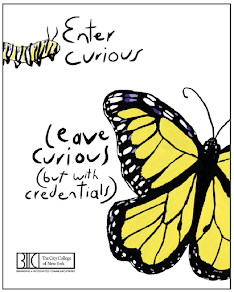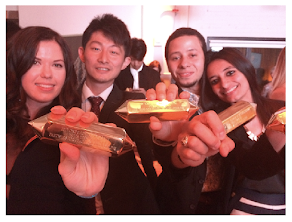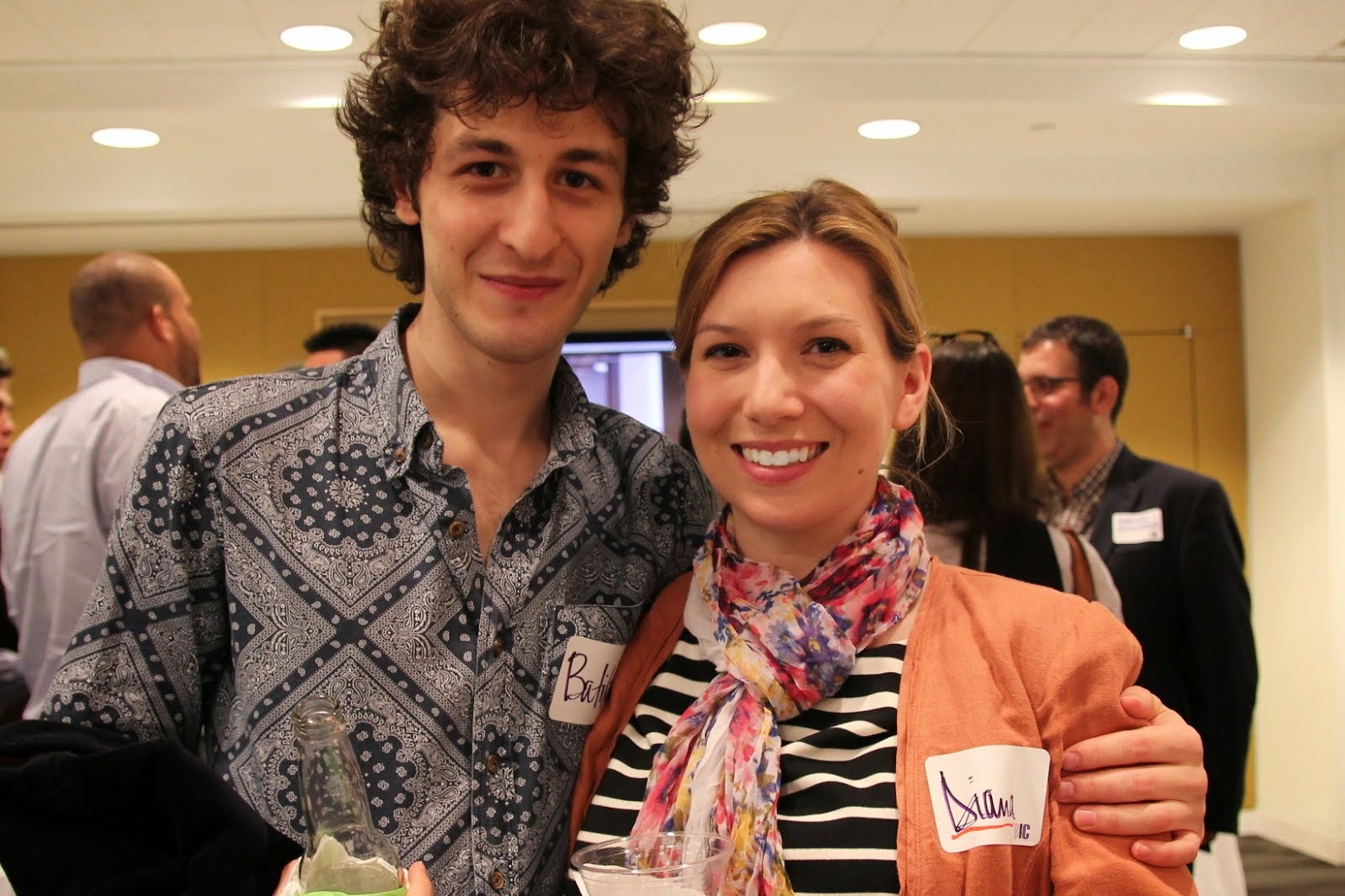BIC's number ONE. Oh, and also number TWO...
BICsters rocked the Great Hall Thursday night as four teams presented amazing projects at the 2017 CCNY Graduate Symposium. Sponsored by the Graduate Student Council and now in its tenth year, the symposium is organized like an exhibition fair. Accepted presentations received a display table where grad students from all CCNY divisions pitched their projects to audience members and judges as they roamed the Great Hall. By night’s end, the winners were announced. In the Humanities and Arts Division, BIC teams earned FIRST and SECOND place finishes.
First place winners Sean Feol-Baugh, Kacy Charles, Joseph Yoo, and Fidel Frias presented their proposal called “Three to Free,” a one-of-a-kind partnership between five of the world’s largest telecoms companies to help stop human trafficking. Facilitated by Partners Global, the telecoms will roll out the latest generation of emergency call tracking and create a single international emergency call number: 323. The service will automatically direct calls based on the country of origin to local law enforcement with specific location data so that all users may speak to someone in their native language. Individuals do not even need to speak to activate this service.
Second place winner Charisse Holder presented research developed in Belle Frank’s B2000 course that used both quantitative and qualitative data to uncover usage patterns of the professional networking platform LinkedIn among millennials. Charisse found that younger millennials have access to more high tech apps and softwares that directly connect them with employers, making LinkedIn less relevant to them. She developed solutions that included providing a mentorship option, where employers and employees can actually connect. As Charisse concluded, suppliers such as LinkedIn must adapt to the growing needs of the customer rather than expect the consumers to naturally come to them.
A third BIC team made up of Ben Miftari, Marta Mugica Telleria, Namrata Kupte, and Naushi Perera presented their proposal for Foregood. Rather than give money to market research firms for consumer data, Foregood is a service that allows consumer to volunteer their data in exchange for giving money to a charity of their choice.
Ben was also paired with Enmanual Vargas to present their project to promote gender equality by drawing attention to the pay gap between men and women. Accentuating the 22% difference, they proposed that during publications that relied on the talents of women (i.e., ALL publications) lop off 22% of their product so that consumers literally experience the inequality.


















